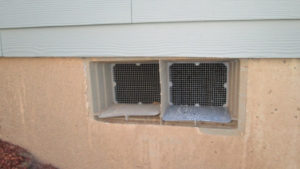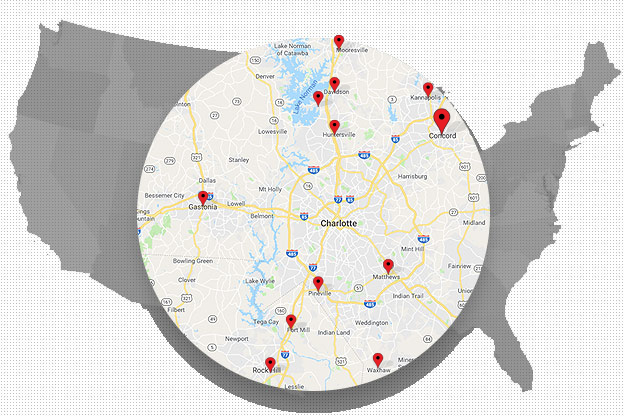This question gets asked a lot when the weather turns cold. The short answer is yes, no, and maybe. It really depends on your home and the area in which you live. I live in the Willamette Valley region of Oregon. The climate is damp, soggy and mild. So, keep in mind the following information is geared toward crawl spaces around here. However, some basic principles can help guide you no matter where you live or type of house you own.
Why Close Crawl Space Vents? The main reason is energy efficiency. Blocking the vents to the crawl space below your house helps keep the area a bit warmer and saves a few dollars on your heating costs. How much you can save varies greatly on the size or type of house and the amount or type of insulation you have in the crawl space
Are All Crawl Spaces Setup The Same? No. Crawl spaces will usually have either no insulation, insulation on the foundation walls, or insulation under the floor. A house with no insulation or insulation on the foundation walls generally has the biggest energy savings when the vents are blocked. The movement of cold air through the space is slowed and therefore somewhat warmer than if the vents were open. Blocking vents on a house with underfloor insulation can still save money but has minimal impact.
It is always a good idea to block the vents when the crawl space has uninsulated water supply pipes if the temperature gets below freezing. Frozen, busted pipes result in paying for plumbing repairs and possible water damage.
Is there a downside to blocking foundation vents? Yes. Air movement under a house is a critical element in drying moisture. Excess moisture in a crawl space will often be a contributing factor when wood boring insect infestation and rot conditions are found
So, What’s The Right Answer? Considering our region’s climate plus potential problems with rot and insects I lean towards leaving the vents open for this area. The negative impact of the excessive moisture can be substantial. Numerous times I’ve seen houses with crawl space vents that look like they’ve been covered for the last 30 years. Those crawl spaces generally have the worst insect and rot damage. If you must close your vents during winter I highly encourage you to do it only when the temperature drops below 32⁰. Otherwise, keep them open when the temperature is consistently above freezing to avoid moisture-related problems.


